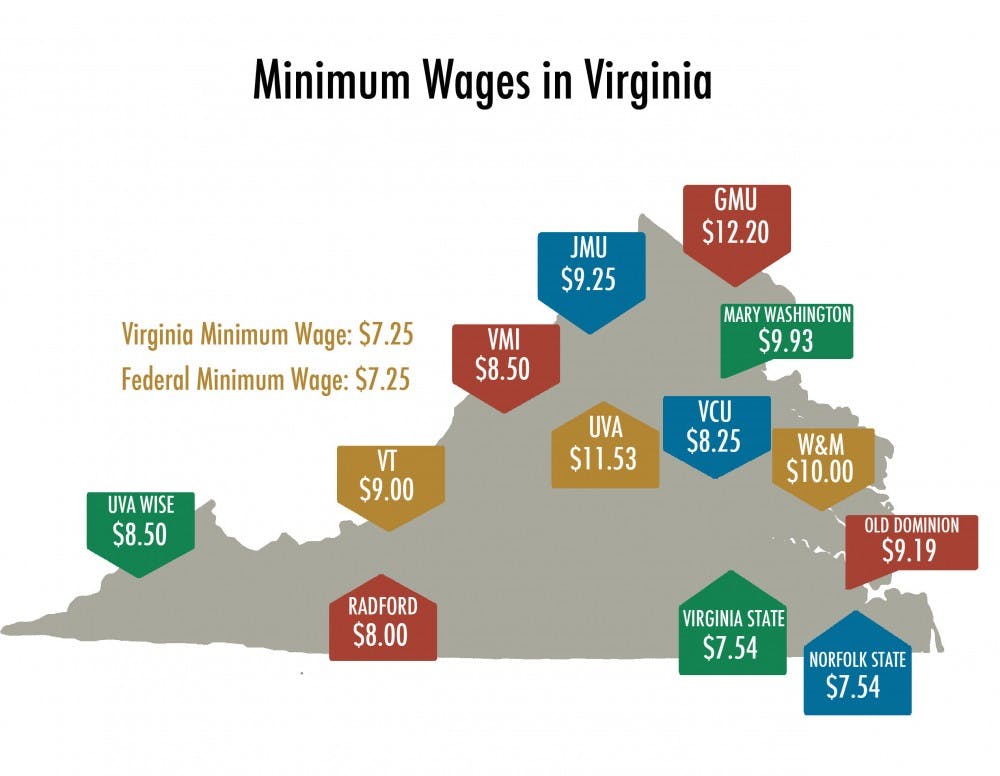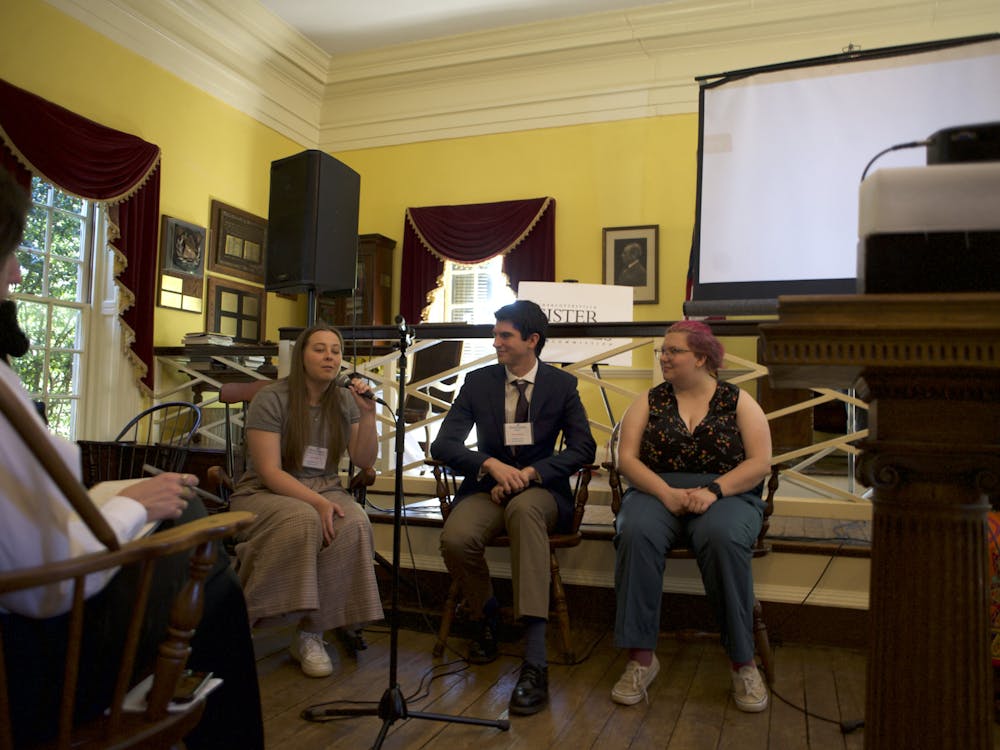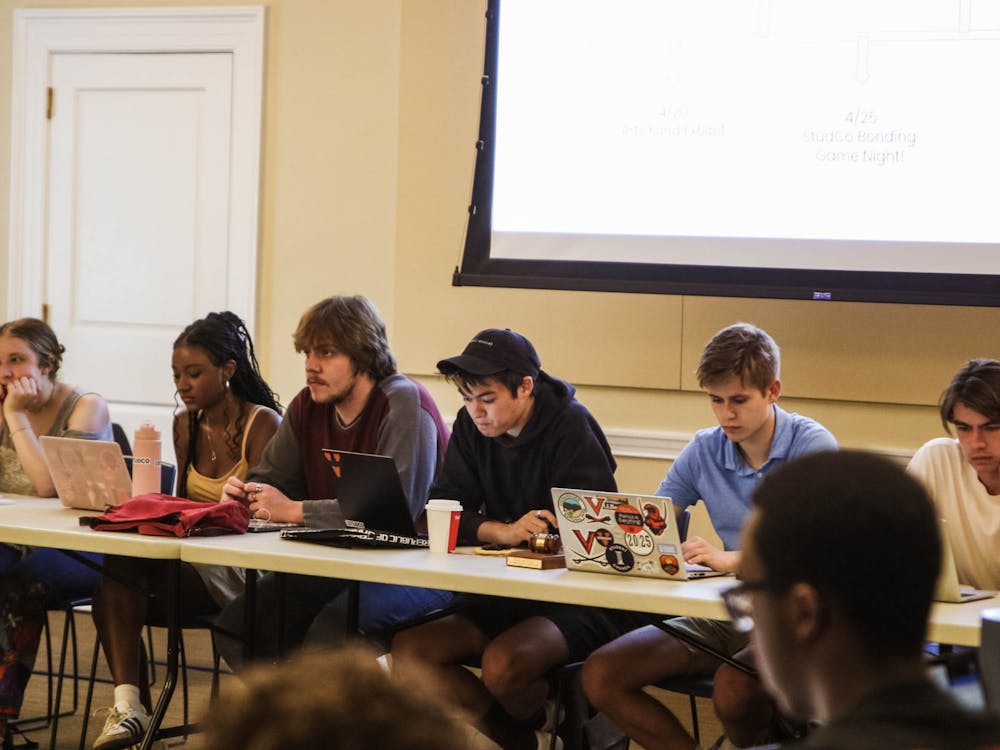The Virginia Senate Commerce and Labor Subcommittee failed to advance two minimum wage bills to the floor Monday, stalling a fight in the legislature to increase the incomes of the poorest Virginians.
One of the bills, proposed by Sen. Linda “Toddy” Puller, D-Prince William, would have raised the state’s minimum wage to $8.00 per hour. The bill, however, was pulled before it could be voted on after a similar bill was defeated.
“This was basically suicide instead of homicide,” said Carrie Ann Alford, a legislative assistant for Puller. “If you know the bill isn’t going to pass, but you stand by the idea [of the bill], you’ll do whatever possible to keep it from getting killed on the floor [in case it is reintroduced]. We knew the vote total wasn’t going to change.”
Alford said after correcting for inflation, minimum wage workers in Virginia are earning $2 less per hour than they were in the 1960s.
The Democratic Caucus of the Virginia State Senate has been fighting for a state minimum wage increase for a while, said Alford. A number of liberal groups spoke on behalf of the bill.
“It’s not possible to live on minimum wage,” Alford said. “Most [minimum wage workers] can’t get 40 hours [of work] per week on minimum wage because then the employer would have to give them health benefits, so most work two to three part time jobs to try to make 40 hours a week. They end up earning about $15,000 a year.”
Sen. David Marsden, D-Fairfax, also proposed a minimum wage bill that was voted down 11 to 3 in subcommittee Monday. Marsden’s bill proposed raising the state minimum wage to $8 per hour this year, $9 per hour in 2016, and then $10.10 the year after that.
“I think Virginia needs a raise,” Marsden said. “We haven’t raised the minimum wage in some time. [Raising the minimum wage] puts money in the hands of people who will spend it. It stimulates the economy.”
Economics Prof. William Johnson, who specializes in labor economics, said an increased minimum wage may not be that beneficial, especially for employers.
“It’s hard to imagine a situation in which businesses are better off with a higher minimum wage — they don’t need a law to tell them to pay an employee more money,” Johnson said. “If a business thought it would be better to pay [an employee] $10 instead of seven, they would.”
Johnson added that many minimum wage workers are not the only earners in their households, and that evidence points to some reduction in employment as a result of higher minimum wages.
“It’s a tradeoff,” Johnson said. “There’s less employment, but those employed have higher wages.”
Virginia does not currently have a state minimum wage. Instead, the state adheres to the federal minimum wage of $7.25 per hour.
“Some states and cities have passed laws that enact higher minimum wage than the federal minimum, [and] that’s what was proposed here,” Johnson said. “[But] I’m not convinced that a higher minimum wage is a good way to raise the incomes of low-income households.”
Keith Martin, vice president of public policy and general counsel for the Virginia Chamber of Commerce, echoed Johnson’s concerns.
“Raising the minimum wage would increase the total labor cost for small businesses, and they would have to reduce employees’ hours or the number of employees,” Johnson said. “It may prevent them from hiring new employees. [The bill] would hurt the same people it’s trying to help.”
Martin said the Chamber of Commerce wants to focus instead on education and workforce development in areas like health care, information technology and advanced manufacturing.
“We’re working with the General Assembly and the governor to improve workforce development,” Martin said. “There are [job] vacancies that we need employees with certain skill sets to fill.”
Martin added that the Chamber wants to see better career advancement opportunities for people at or below the poverty line.
“Most minimum wage employees are in entry level positions,” he said. “Increasing the minimum wage may create a barrier for employees who want to move beyond those positions.”
Marsden does not plan on introducing any further minimum wage legislation this year, and doesn’t expect to see any unless Gov. Terry McAuliffe sends down a bill. Puller is retiring after this term.
“Sometimes you have to put the bill through because it’s the right thing to do,” Alford said. “We were hopeful it would go further.”
Correction: Sen. Puller's bill would have raised the minimum wage to $8.00, not $10.10 per hour.





